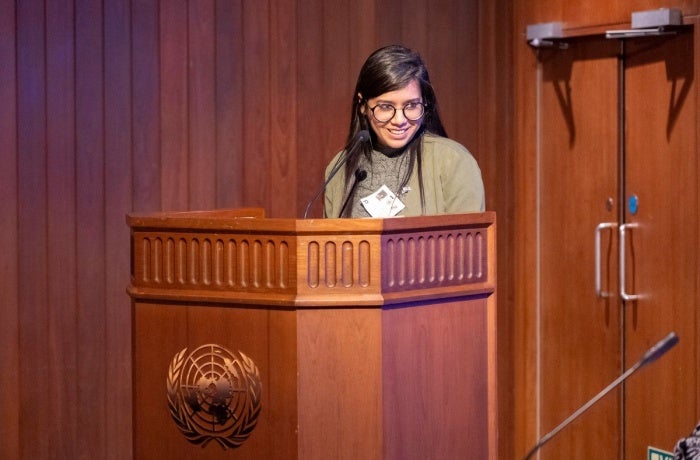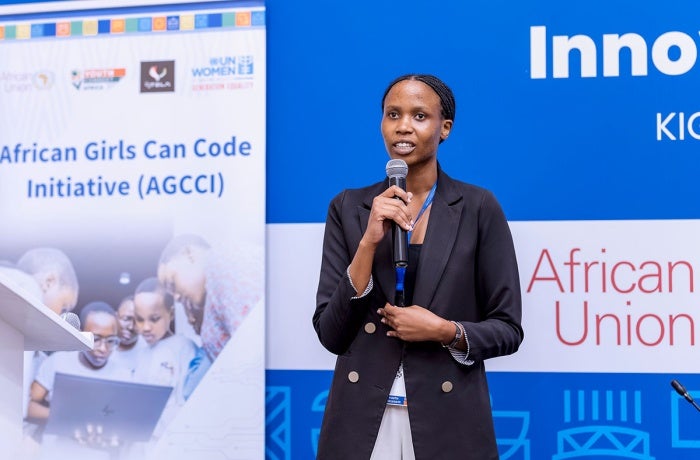Gender equality starts at home: Five ways to drive change within the family
Around the world, families are on the front lines of the struggle for gender equality —and can be “make or break” for women and girls when it comes to achieving their rights. They can be places of love and support, but too often are spaces where women’s and girls’ rights are violated and their voices stifled.
On the International Day of Families, we’re highlighting the ways that families and communities can drive change and promote equality by upholding feminist values in and around family units. From celebrating positive masculinity and sharing care work to having open and honest discussions about existing inequalities and gender-based violence, here are five ways family units can help build a more equal future for everyone.
Share the care
From cooking and cleaning, to fetching water and firewood or taking care of children and the elderly, women carry out at least three times more unpaid household and care work than men. As a result, thousands of women and girls miss out on equal opportunities to attend school, engage in paid work, or enjoy leisure time.
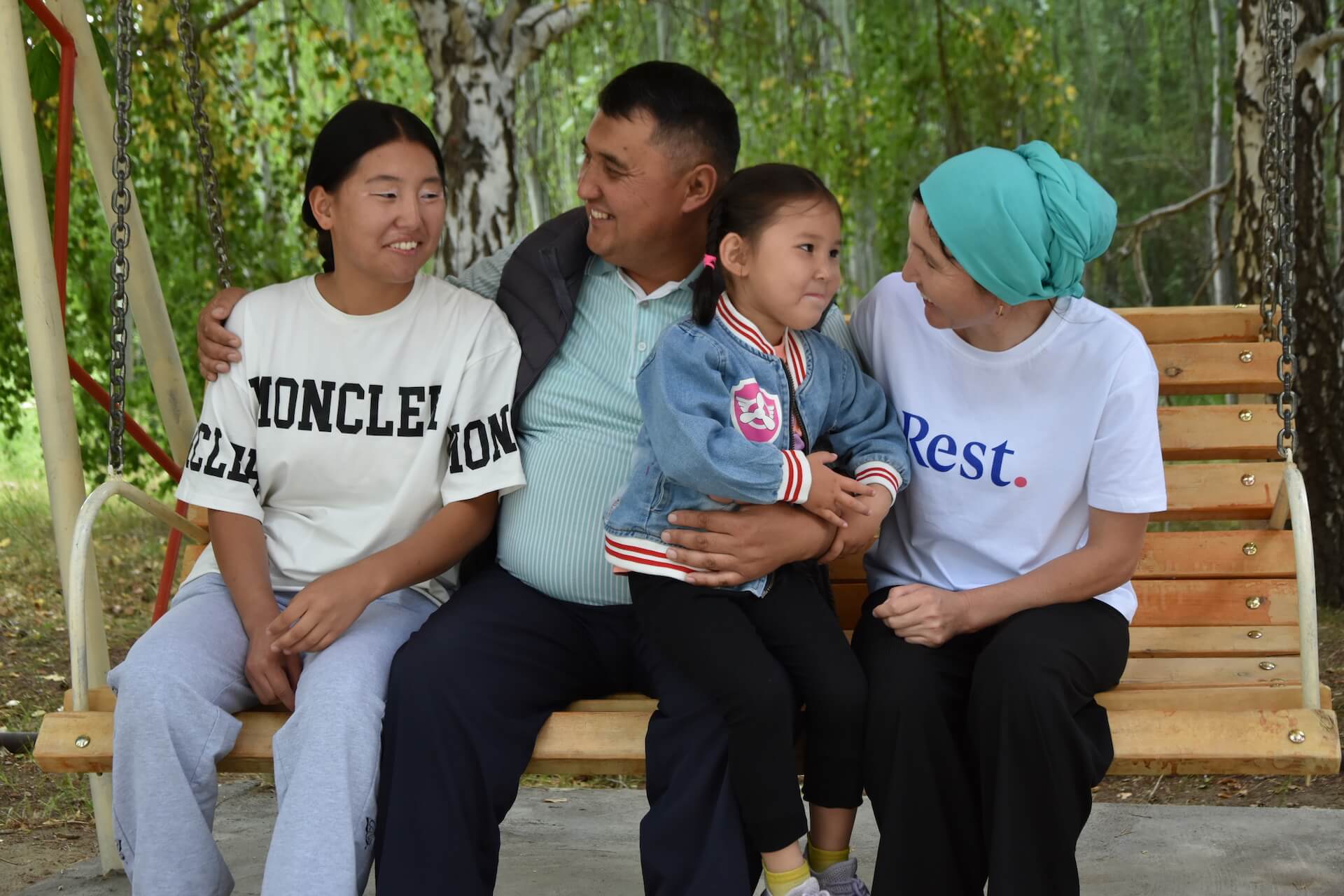
In Kyrgyzstan, under the Spotlight Initiative, UN Women is working to change social norms in and outside of homes through community trainings and awareness-raising. Gulnaz Almambet Kyzy and her husband attended one of these trainings in 2021 and, after seeing a visual representation of how their care work was divided, decided to make some changes.
“We both work 40 hours a week, but he used to come home from work and lie on the couch watching TV, while I was responsible for doing all the housework in the evenings,” said Gulnaz “Unfortunately, it is acceptable behaviour in our country.”
Since the training, Gulnaz and her husband have reassessed their responsibilities and more equally divide care work at home. “The atmosphere in our family has improved a lot with better communication and a more equal distribution of family chores,” she said. “It gave me some time to make my dream come true and open my own business, which has increased our family income by 50 per cent.”
Support women's economic empowerment
Women’s economic empowerment sets a direct path towards gender equality, poverty eradication and inclusive economic growth. Women make enormous contributions to economies, whether in businesses, on farms, as entrepreneurs or employees. But for many women, domestic inequalities and a lack of support at home holds them back from reaching their full potential.
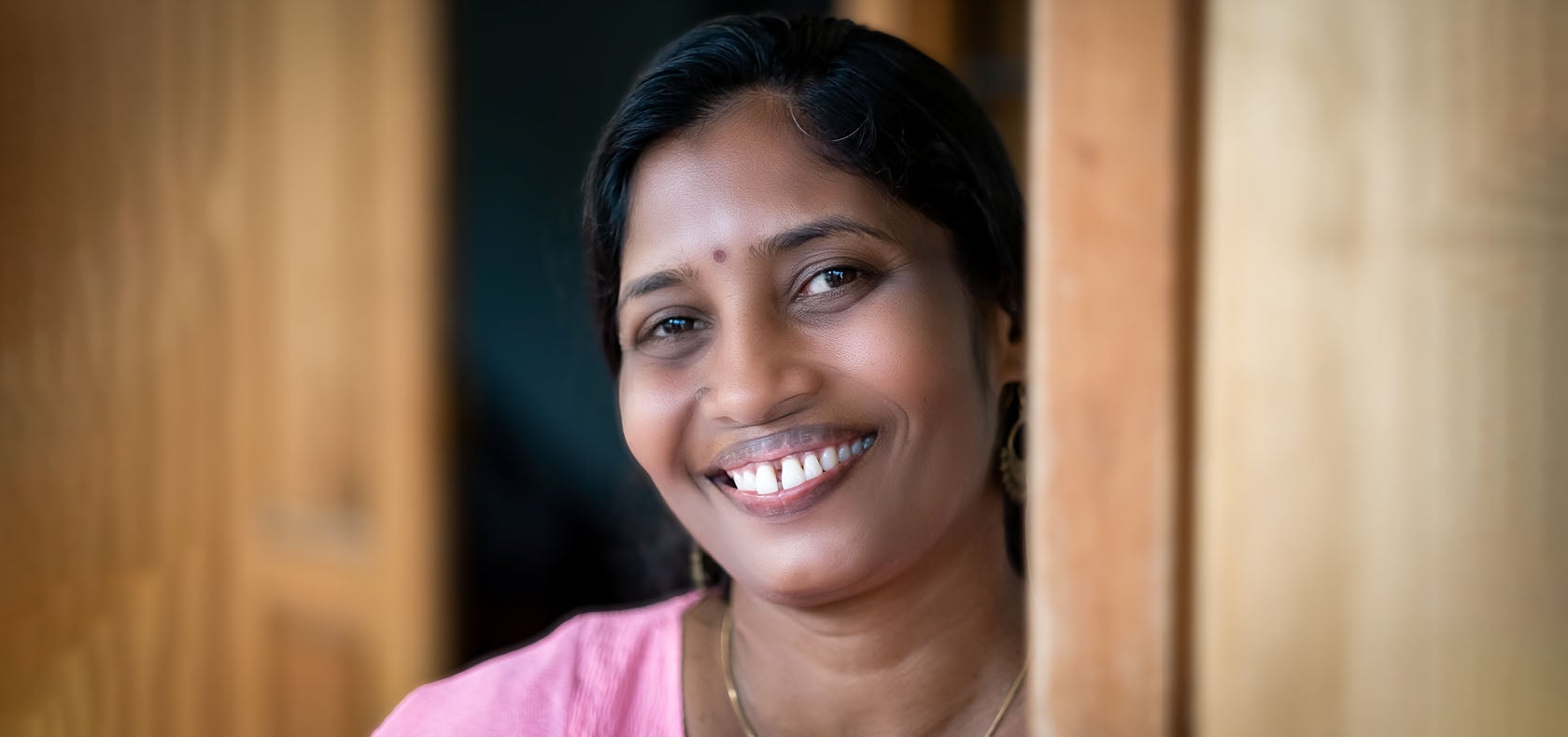
In Sri Lanka, Jena Jeyakanthi’s small business was able to succeed due to the encouragement of her mother, grandmother, husband and children. After attending an entrepreneurship training organized by UN Women and a local partner, Jena began selling local herbs and vegetables. Today, she has her own brand—and has found that her new economic independence has improved life at home.
“When a woman has her own income, her confidence will grow, and she will have her freedom. If we work towards securing our rights, we can escape violence to some extent as well,” Jena said.
Since finding her own success and independence, she advises men to help empower the women in their lives, too: “I ask them to please support these women. And if you cannot, at least don’t trouble them.”
Celebrate positive masculinity
Traditional notions of masculinity often discourage men from engaging in care and domestic work, as well as from communicating their emotions in open, healthy ways. Challenging such notions—key to fostering equality and preventing violence—starts at home.
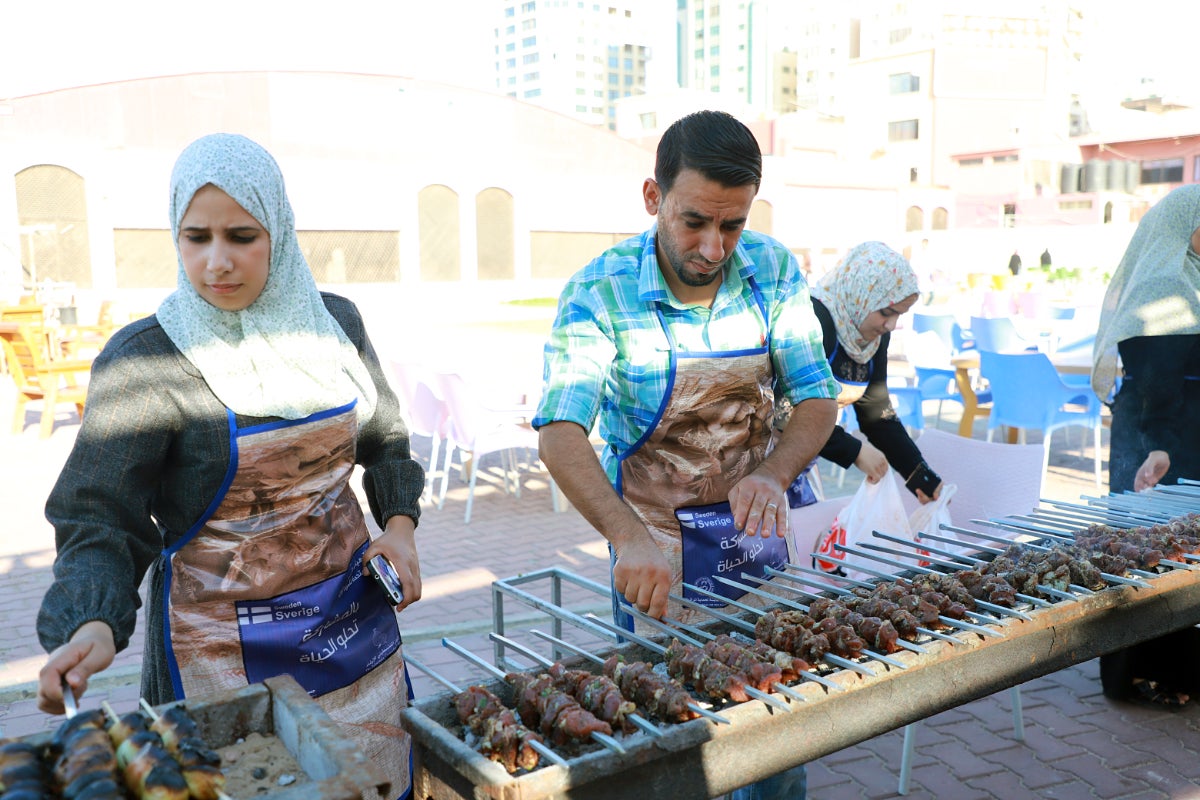
As a young father from the Jabalia refugee camp in the northern Gaza Strip in Gaza, Muhammad Kaddass used to live adhering to conventional gender roles—namely working, providing for his family, and trying to be a good husband the way he knew how.
Then, Muhammad participated in a series of discussions organized by UN Women. While the idea of taking on more household and care work didn’t appeal to him at first, learning how these chores and responsibilities would benefit his family motivated him to get involved.
Through the workshops, Muhammad learned not only why equality at home is important, but how being a more engaged father and setting an example of positive masculinity can end cycles of aggression and lead to better and happier futures for his children.
"When the program started, I wished that I had taken it when I first got married. My marital life would have been very different," said Muhammad.
Empower the next generation
Around the world, young people are pushing for a better, more equitable world. Support and encouragement at home can helo put them on the path to success. When we empower and educate young advocates about women’s rights, we are ensuring a better future for us all.
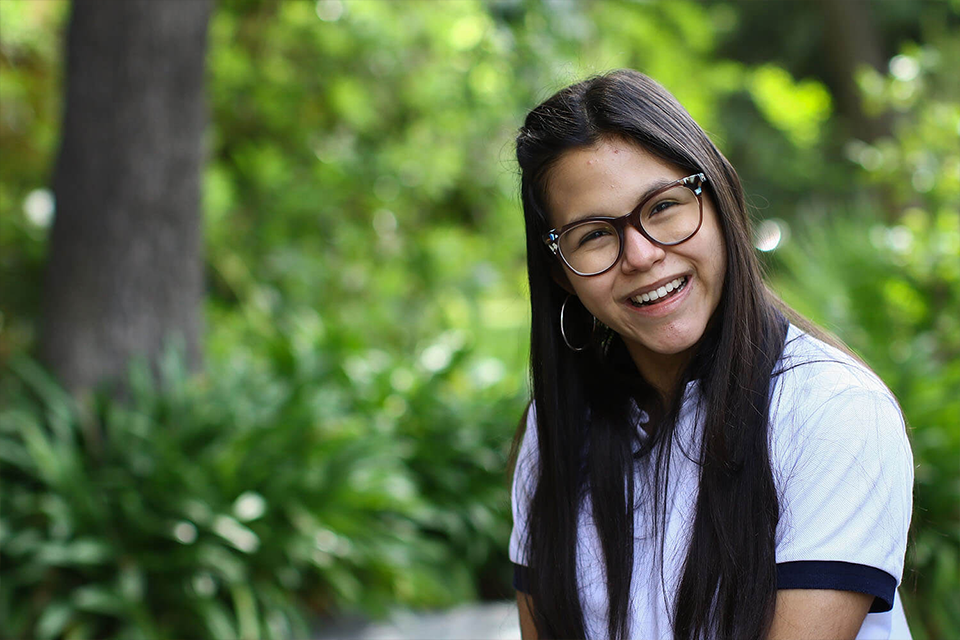
At just 16, Isidora Guzman has already made strides towards creating an equal and accessible future for all. One of her major achievements includes the development of an app to help people with disabilities find parking in their municipality.
“By enforcing inclusion, society can change the exclusionary paradigm, providing each person with specific tools so that they can live in dignity without any barriers. I advocate for inclusion in general and not solely for disability, because we all deserve to find our place in the world,” she said.
For Isidora and many youth activists and leaders, this passion for equality for all started within her own family. As a wheelchair user herself, Isidora is glad to have grown up in a home surrounded by support .
Thanks to the encouragement she received at home, there is no limit to Isidora’s dreams, and her commitment to an inclusive and equitable future is already shaping the world around her.
“I think I was always in an environment that taught me the value of feminism, because my parents and my maternal grandmother raised me without barriers or stereotypes, teaching me that nothing and no one could put limits to achieve my goals,” she said.
End harmful practices
Practices like female genital mutilation (FGM) deprive women and girls of their agency as well as their physical well-being. Most often performed on children, FGM has serious health consequences in both the short and long term, and progress on the issue—already too slow—has been threatened by the COVID-19 pandemic.
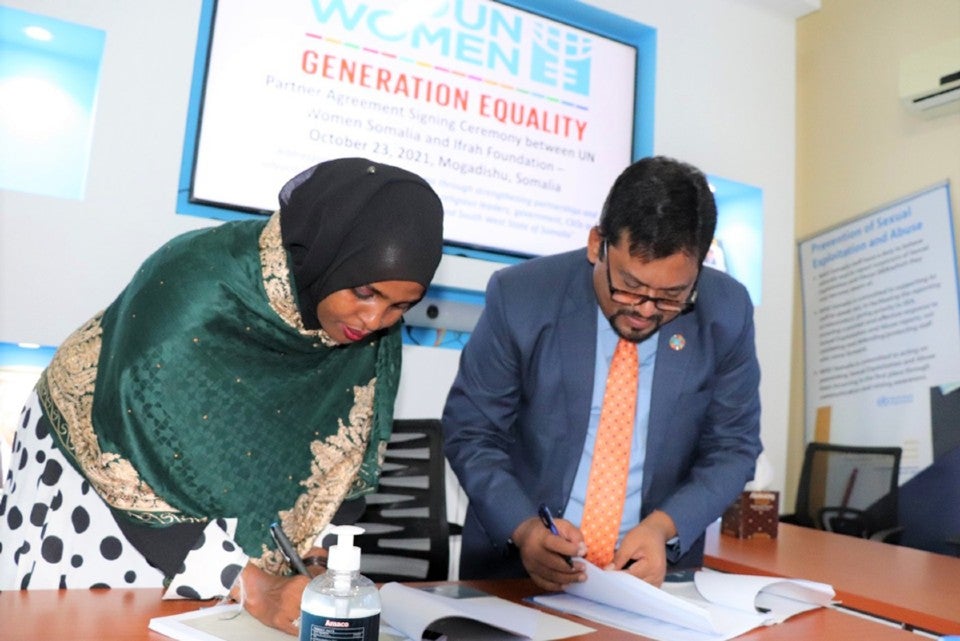
At 8 years old, Ifrah Ahmed underwent FGM at the hands of a family member, suffering pain and discomfort through much of her life as a result. After fleeing conflict in her home country of Somalia and arriving in Ireland as a refugee, she learned from medical professionals and other survivors more about the harm caused by the practice—and has now devoted her life to eradicating it .
In 2010 she co-founded the Ifrah foundation and has partnered with projects and experts around the world to drive change. With UN Women’s support, the foundation is working on public events to educate communities on the harm of the practice and call on families to commit to not cutting their daughters.
Another of the foundation’s campaigns, created in partnership with UNFPA, is focused specifically on appealing to mothers as empowering forces in their daughters’ lives.
“Mothers, sisters, grandmothers say that if they have been through FGM, their daughter should do the same. It’s the mentality,” Ifrah said. She’s working to change that mentality through the Dear Daughters campaign, whichinvites mothers to write down their stories of FGM and commit to end the cycle by not allowing the same to happen to their daughters.







